13 Best Infrastructure Stocks for America's Big Building Spend
These 13 infrastructure stocks represent several themes that could enjoy a boost now that America's $1.2 trillion infrastructure bill has become law.

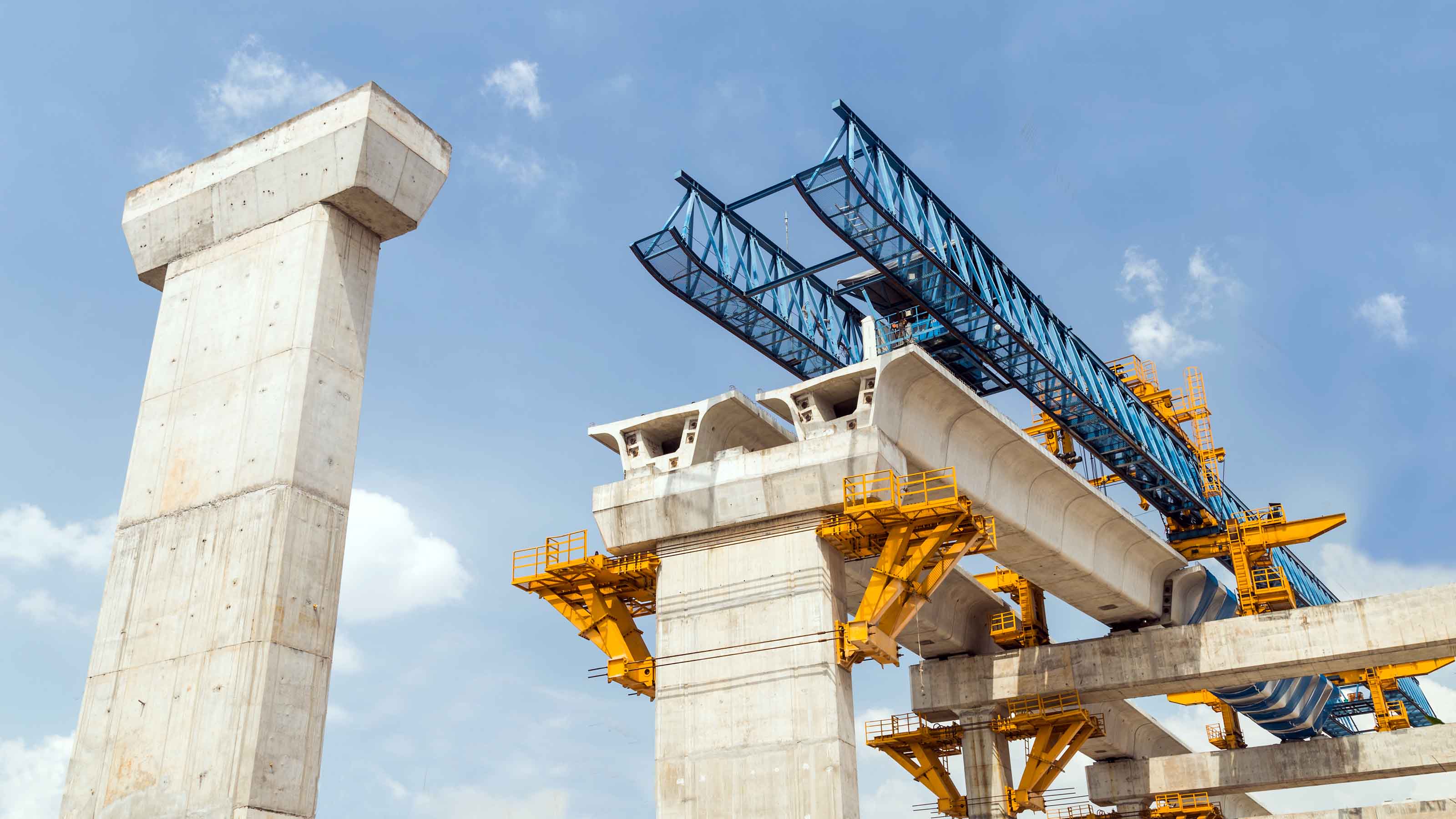
Profit and prosper with the best of Kiplinger's advice on investing, taxes, retirement, personal finance and much more. Delivered daily. Enter your email in the box and click Sign Me Up.
You are now subscribed
Your newsletter sign-up was successful
Want to add more newsletters?

Delivered daily
Kiplinger Today
Profit and prosper with the best of Kiplinger's advice on investing, taxes, retirement, personal finance and much more delivered daily. Smart money moves start here.

Sent five days a week
Kiplinger A Step Ahead
Get practical help to make better financial decisions in your everyday life, from spending to savings on top deals.

Delivered daily
Kiplinger Closing Bell
Get today's biggest financial and investing headlines delivered to your inbox every day the U.S. stock market is open.

Sent twice a week
Kiplinger Adviser Intel
Financial pros across the country share best practices and fresh tactics to preserve and grow your wealth.

Delivered weekly
Kiplinger Tax Tips
Trim your federal and state tax bills with practical tax-planning and tax-cutting strategies.

Sent twice a week
Kiplinger Retirement Tips
Your twice-a-week guide to planning and enjoying a financially secure and richly rewarding retirement

Sent bimonthly.
Kiplinger Adviser Angle
Insights for advisers, wealth managers and other financial professionals.

Sent twice a week
Kiplinger Investing Weekly
Your twice-a-week roundup of promising stocks, funds, companies and industries you should consider, ones you should avoid, and why.

Sent weekly for six weeks
Kiplinger Invest for Retirement
Your step-by-step six-part series on how to invest for retirement, from devising a successful strategy to exactly which investments to choose.
One of President Joe Biden's highest priorities has finally become reality: a massive infrastructure deal that will usher in more than a trillion dollars in new spending across eight years to improve the nation's roads, bridges, rail, internet, water systems and more.
A quick reminder: Biden's original $2.25 trillion infrastructure proposal would have been the biggest public works program in decades. In the president's own words, it would be "unlike anything we have seen or done since we built the interstate highway system and the space race." But large portions of the proposed bill faced significant hurdles in Congress. For example, there were sections that addressed improvements to the home healthcare system and called for the creation of jobs at "prevailing wages in safe and healthy workspaces" that critics said had little to do with what we might normally consider infrastructure.
That said, infrastructure spending is generally popular with voters. Hatred of potholes and gridlock seems to be one of the few areas of agreement between Republicans and Democrats.
"Maintaining America's place as the world's premier economy isn't something that just happens," says Chase Robertson of Houston-based RIA Robertson Wealth Management. "It requires investment. Most of that investment comes from the private sector, but certain things – particularly roads, bridges and shared infrastructure – tends to be funded by the government. And the new administration has made it very clear that this is a major priority."
The new infrastructure bill, which Biden signed into law Nov. 15, boasts a $1.2 trillion price tag that includes $550 billion in new spending that should be a boon to traditional infrastructure stocks.
Today, we're going to look at 13 of the best infrastructure stocks that should benefit from a spending surge from Washington. This includes many names you'd typically associate with traditional infrastructure, as well as several unorthodox picks that a bill could bolster nonetheless. (We also have you covered if you prefer infrastructure ETFs.)
Data is as of Nov. 5. Dividend yields are calculated by annualizing the most recent payout and dividing by the share price.

Vulcan Materials
- Market value: $26.0 billion
- Dividend yield: 0.8%
If you expect to see a lot of roads paved or repaired in the coming years, then it makes sense to own Vulcan Materials (VMC, $196.06). It's America's largest producer of construction aggregates, which includes things like crushed stone, sand and gravel. It's also a major producer of asphalt and cement. Aggregates make up 76% of the company's revenues and 91% of its gross profit.
Vulcan's sales mix is spread roughly evenly between private-sector buyers (primarily residential and nonresidential building construction) and government buyers (primarily highways and building infrastructure). Even without a major spending bill, an expected increase in new home construction would likely be enough to give Vulcan's top line a meaningful boost. But with Uncle Sam looking to open his checkbook, Vulcan is likely looking at years of above-trend growth.
The Biden administration has shown a preference for "buying American," and this should suit infrastructure stocks such as Birmingham, Alabama-based Vulcan Materials just fine. It's as American as apple pie, with more than 360 aggregates facilities scattered across the country. The company has been in business for 64 years and is considered the leader in the industry.
VMC is an obvious beneficiary of the new infrastructure bill.

Martin Marietta Materials
- Market value: $25.7 billion
- Dividend yield: 0.6%
Up next is Martin Marietta Materials (MLM, $412.32).
MLM could be among the best infrastructure stocks over the coming months or longer because the story here is very similar to Vulcan Materials. Martin Marietta is a building materials company that specializes in the inputs used in large construction and infrastructure projects. Among other things, it makes crushed sand and gravel products, ready-mixed concrete and asphalt, and paving products and services.
Additionally, Marin Marietta makes magnesia-based chemical products for industrial, agricultural and environmental applications, and produces dolomitic lime for the steel and mining industries.
Apart from the infrastructure implications – you need cement and asphalt for roads and bridges – Martin Marietta's chemical products are used in flame retardants, wastewater treatment and assorted environmental applications.
Martin Marietta was heavily up and down over much of the past five years. But in the second half of 2020, the stock finally started to build a trend and broke out of its range. It's now up 45% year-to-date in 2021, and it could have more room to run as the infrastructure funds are spent.
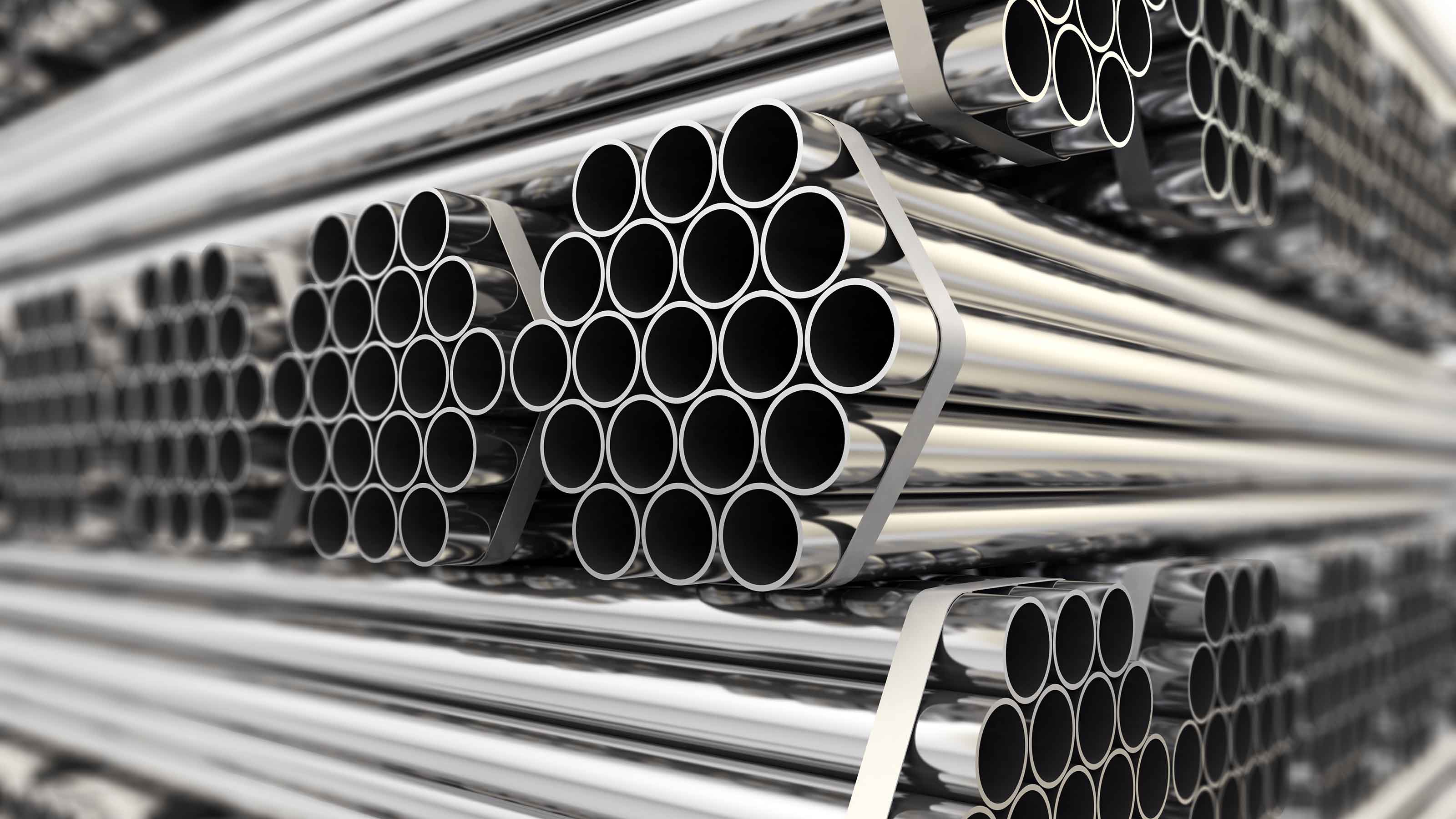
Nucor
- Market value: $32.1 billion
- Dividend yield: 1.4%
Iron is primarily used in the creation of steel. So, if you're bullish on an iron ore producer like Vale, that generally means you're bullish on steel as well.
This brings us to Nucor (NUE, $112.20), the largest domestic steelmaker in North America. As Nucor describes its place in the U.S. economy on its website:
Steel is vital to the development and maintenance of America's infrastructure. Nucor's products have a proven track record in several of our nation's prominent structures, including airports, bridges, dams and waterways. Our wide range of infrastructure products includes plate, rebar, sheet piling, pipe piling, structural steels, guard rails, sign post and grating, to name a few.
The Biden administration's preference for "buying American" should give Nucor an advantage over its larger foreign competitors such as Luxembourg's ArcelorMittal (MT) or Japan's Nippon Steel (NPSCY).
Things already are going well enough for Nucor without an expected bonanza in infrastructure spending. The company took the unusual step in February of pre-announcing that it expected its first-quarter earnings to set a company record. It followed that up with record net income in Q2, and then again in Q3. That also bodes well for this Dividend Aristocrat's ability to keep raising its payout.
Pent-up demand from automakers and other industrial buyers coming out of the pandemic have massively boosted demand for Nucor's steel. Passage of the infrastructure bill is icing on the cake.

Caterpillar
- Market value: $111.4 billion
- Dividend yield: 2.2%
A list of Wall Street's best infrastructure stocks doesn't really feel complete without Caterpillar (CAT, $205.88), easily the most iconic maker of construction and mining equipment.
Caterpillar's yellow trucks and machinery are ubiquitous in virtually every construction site across the globe. It makes asphalt pavers, compactors, excavators, pipelayers, backhoes and just about everything else you'd need for a major infrastructure project.
Between late 2017 and 2020, Caterpillar had traded in a range. With commodity prices in the tank and major construction and mining projects few and far between, investors just didn't have a lot of enthusiasm for the stock.
But then, something changed. The shares found a bottom in March of last year and have more than doubled since then. It seems investors figured out early that infrastructure spending would be a major component of any economic recovery plan.
Caterpillar is not a pure play on American infrastructure. If fact, much of the reason for its poor performance in the years leading up to 2020 was weakness in emerging markets, which had previously been a source of strength. But looking ahead, Caterpillar's exposure to emerging markets should be considered a positive once again. The U.S. is certainly not the only country that will be looking to spend its way back to economic health.

Deere
- Market value: $110.1 billion
- Dividend yield: 1.2%
Deere (DE, $355.20) is known best as a maker of tractors and other heavy-duty farm equipment. But the company does a lot more than that. It's also a major producer of construction and forestry equipment, and specifically the equipment used in earthmoving and roadbuilding.
Agricultural machinery is still Deere's biggest segment, of course. In 2020, the company sold $22.8 billion in farming equipment. But its construction and forestry business also is a force to be reckoned with. This segment did a very healthy $9.2 billion in sales in 2020. And more than two-thirds of that was specifically sales of roadbuilding and construction equipment.
While Deere's construction equipment business is why it belongs with other infrastructure stocks, its larger agricultural equipment business also should enjoy several fruitful years ahead.
Stimulus actions by the Federal Reserve and other central banks are helping to fuel a surge in commodity prices, including soft agricultural commodities. Higher prices tend to spur new cultivation, so don't at all be surprised to see sales jump in Deere's agricultural segment as well.
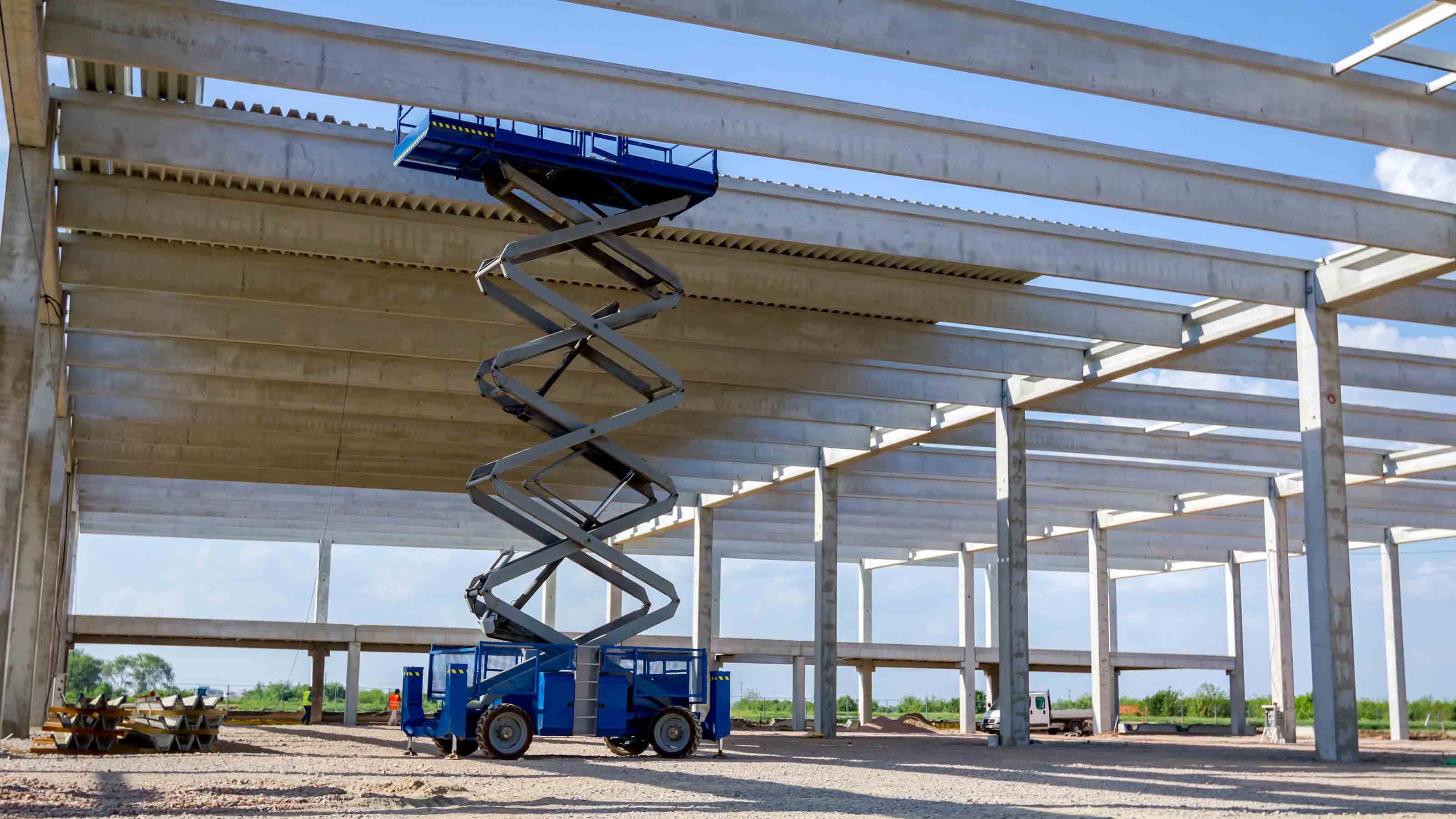
United Rentals
- Market value: $28.4 billion
- Dividend yield: N/A
We've established that there will almost certainly be a flood of construction spending in the years ahead, and that this will create sustained demand for equipment. Another way to play this trend is via the shares of equipment rental company United Rentals (URI, 391.96).
United operates a network of 1,165 rental locations, 1,018 of which are in the United States, and it runs two segments: General Rentals and Trench, Power and Fluid Solutions. The General Rentals segment rents out what you would think of as typical construction equipment: backhoes, forklifts, earthmoving equipment, boom lifts, etc. The Trench, Power and Fluid Solutions segment rents out specialty equipment specifically designed for underground work and fluid treatment.
URI shares cooled off a little in late spring, but have since restarted their advance, racking up nearly 70% gains in 2021. It seems Wall Street is already pricing in a surge in new sales.
That's OK. Given that the U.S. is about to spend $1.2 trillion to rebuild its infrastructure, there's still plenty more room for growth.
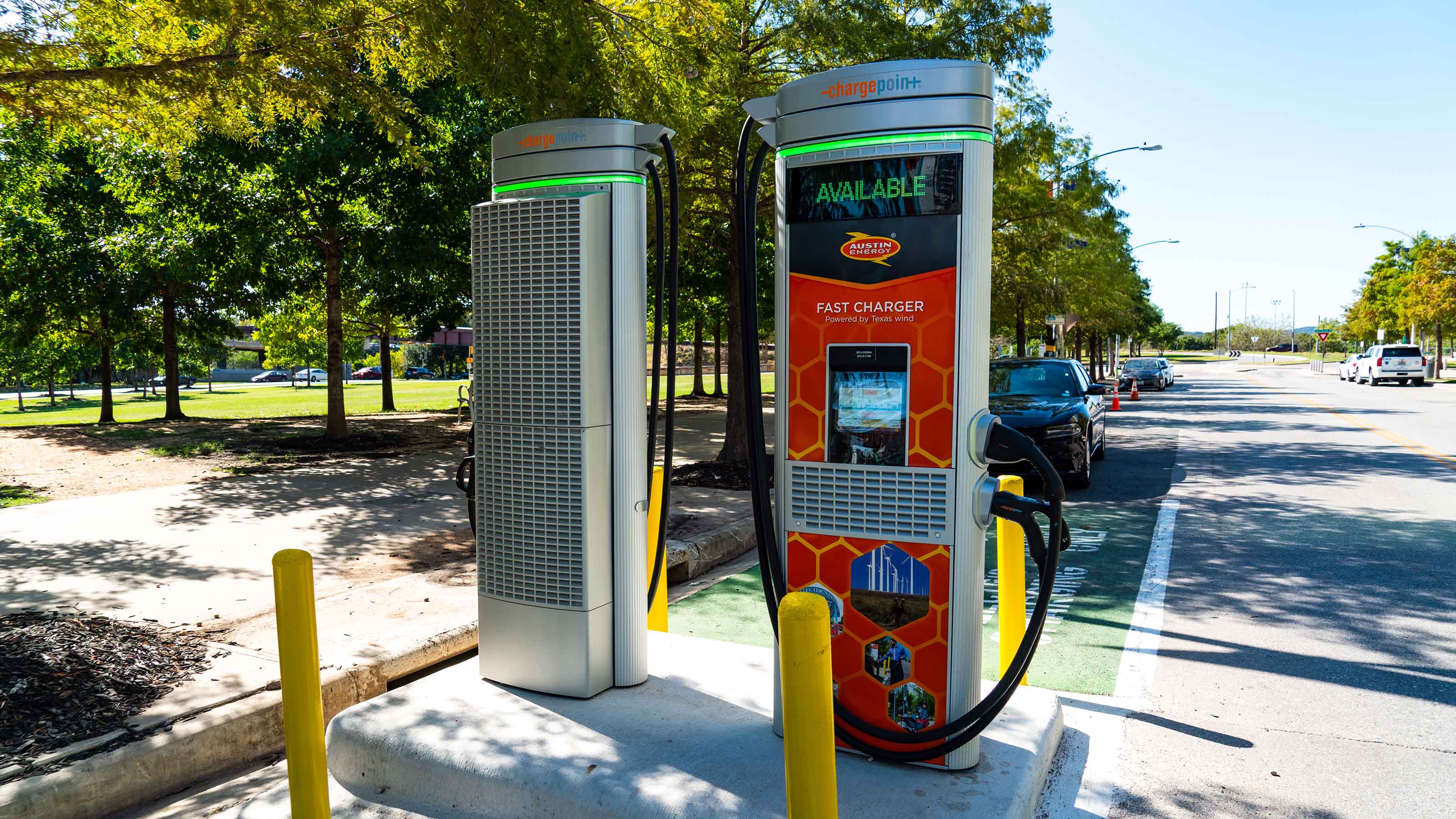
ChargePoint Holdings
- Market value: $8.0 billion
- Dividend yield: N/A
Biden is serious about retaking leadership in the electric vehicle space from China. And several of his initiatives from the American Jobs Plan survived in the infrastructure bill.
Among the green initiatives Biden originally sought was the building of 500,000 electric vehicle charging stations across the country by 2030. To give a little perspective on just how big that is, there are only around 115,000 gas stations in the United States. Biden's plan would have created more than four times the number of charging stations as gas stations currently in existence.
This isn't as farfetched as it sounds. Charging stations do not necessarily have to be built to accommodate high traffic like gas stations, and generally have less maintenance to worry about. You can build a small charging station in an office garage or mall parking lot. You can simply add them to existing infrastructure.
Some $7.5 billion in the infrastructure bill would be enough to deliver about half of Biden's original pledge, or roughly 250,000 charging stations. Still, this massive build-out should directly benefit companies such as ChargePoint Holdings (CHPT, $24.69).
ChargePoint builds customized charging stations, and has been in this business since 2007, long before electric vehicles were on the radar of most investors. The company has delivered more than 90 million charges and claims 60% of the Fortune 50 companies as clients.

Oshkosh
- Market value: $7.9 billion
- Dividend yield: 1.3%
Another major green plank for Biden's infrastructure plan was the electrification of the federal vehicle fleet, including the trucks used by the United States Postal Service.
And to that end, Oshkosh (OSK, $115.18) is virtually a guaranteed beneficiary. Oshkosh recently won the contract to produce 165,000 new mail trucks, a significant percentage of which will be electric vehicles. EV maker Workhorse Group (WKHS) had filed a lawsuit contesting the contract in court, but it abruptly dropped the suit in September.
Apart from the mail truck contract, Oshkosh would be an interest infrastructure play for its other businesses as well. OSK builds specialty trucks, including everything from heavy military vehicles to firetrucks. But many of its products are used in heavy construction projects. Oshkosh makes cement mixers, truck mounted cranes, and "cherry pickers" and other hydraulic lifting systems.
And many of these vehicles are now available in electric models, which gives them serious brownie points with the Biden administration.
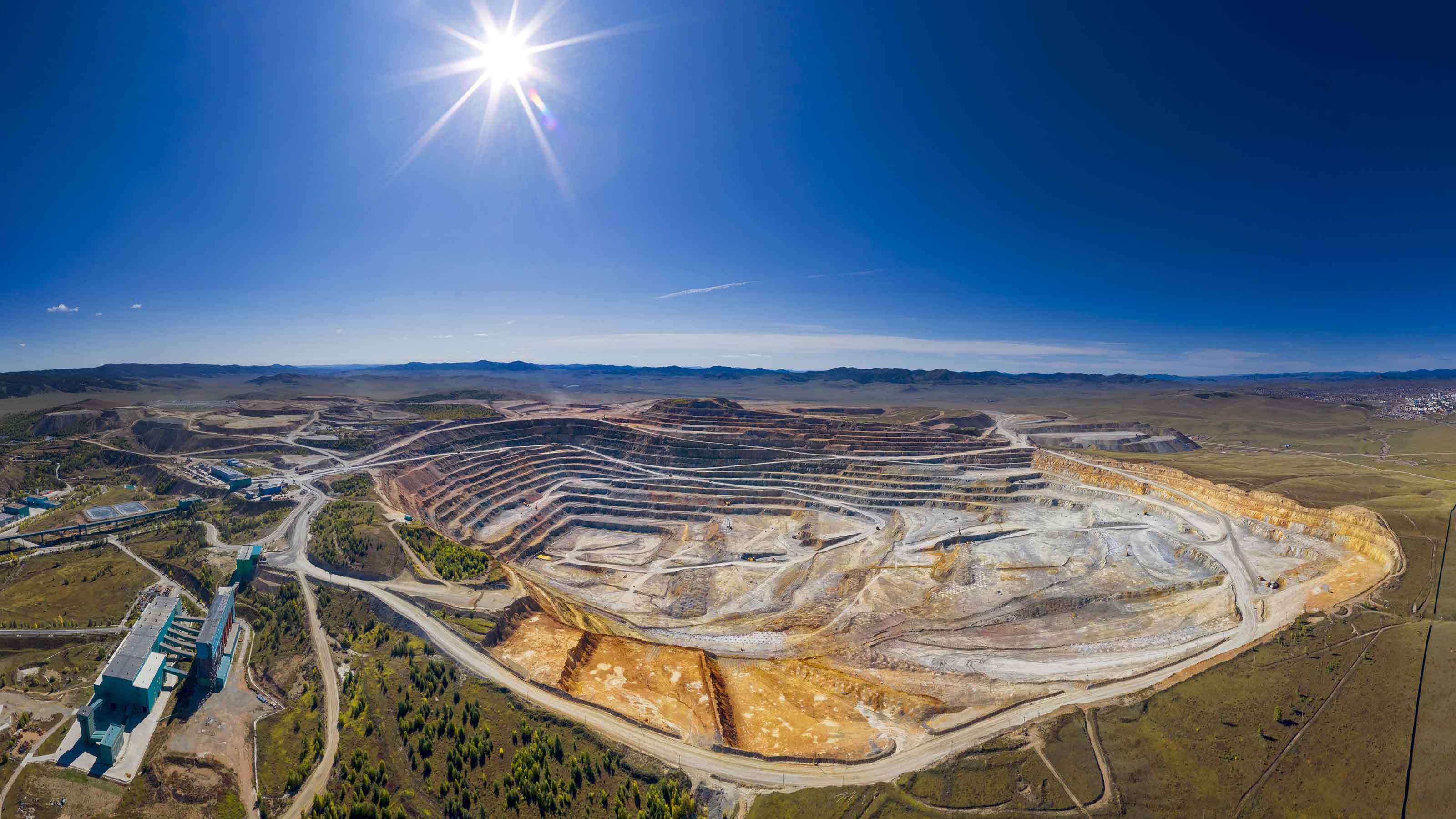
Freeport-McMoRan
- Market value: $54.4 billion
- Dividend yield: 0.8%
Copper is a critical commodity in building and construction. As the preferred metal used in electrical wiring and a major component of plumbing, you really can't build anything without it. Approximately 43% of all mined copper is used in building construction, with another 20% used in transportation equipment.
So, if there was one element that would seem to be in demand for a broad-based infrastructure spending boom, it would seem to be copper.
If you're bullish on copper, then you're bullish on infrastructure stocks such as Freeport-McMoRan (FCX, $37.04). As for FCX specifically, it's one of the world's largest and best-run copper miners.
But there is another angle here, too.
Copper is a critical part of the green energy story, too. Electric vehicles use about four times as much copper as traditional internal combustion vehicles. The transition to solar and wind energy will require major investments in copper, as well – renewable energy uses more than four times as much copper as good, old-fashioned oil and gas. So any infrastructure-bill spending earmarked for green energy should in turn help FCX.
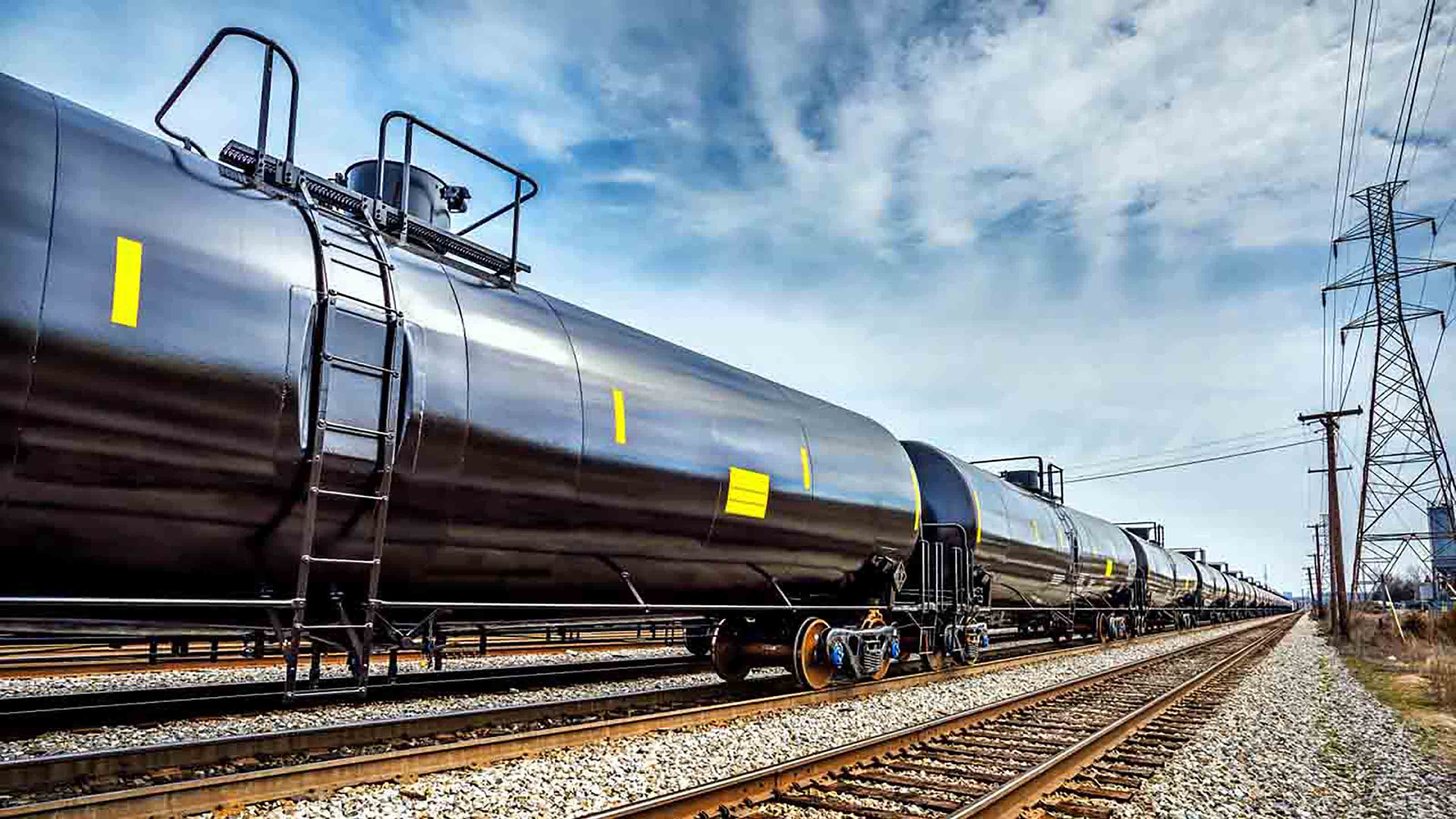
Brookfield Infrastructure Corporation
- Market value: $2.8 billion
- Dividend yield: 3.3%
It's hard to write an analysis on infrastructure spending and not include Brookfield Infrastructure Corporation (BIPC, $62.75).
Together with its sister company Brookfield Infrastructure Partners (BIP), BIPC is one of the largest diversified infrastructure stocks in the world, with operations spanning utilities, transportation, energy and even data infrastructure. (Brookfield Infrastructure Corporation was formed specifically to give investors a way to invest in the company without having to own BIP's limited partner units, which can be cumbersome at tax time.)
The utilities segment operates 2,000 kilometers of natural gas pipelines and 2,200 kilometers of electrical transmission lines, as well as coal export terminals. Its transportation segment moves primarily bulk freight and commodities across its network of 10,300 kilometers of railroads, 4,200 kilometers of toll roads and 37 port terminals. The energy segment operates about 16,500 kilometers of pipelines. And the data segment operates data storage and other cloud solutions.
Brookfield really strives to be shareholder-friendly. It targets a long-term return on equity of 12% to 15% and annual dividend growth of 5% to 9%, well ahead of the rate of inflation.
BIPC is not a pure play on American infrastructure by any stretch of the imagination. Its operations are global. But a rising tide lifts all boats, and a major jump in infrastructure spending in the United States should cause a boom in infrastructure assets across the globe.

Crown Castle International
- Market value: $84.0 billion
- Dividend yield: 2.7%
Biden's campaign pledge and American Jobs Plan also included a promise to provide universal broadband coverage, and that also remained in the Bipartisan Infrastructure Investment and Jobs Act. If we needed a reminder of why fast and reliable internet is critical in a modern economy, we certainly got it in 2020 when millions of American workers and students had to adapt to working from home.
During the New Deal of the 1930s, the U.S. federal government dedicated major resources to rural electrification. This helped to bring poorer parts of the country into the modern economy far earlier than the private sector would have on its own.
Today, the economics of broadband are different, and this is due primarily to the emergence of fast 5G mobile internet. It's a lot cheaper to blanket a region with cell towers than it is to string new cables.
This brings us to Crown Castle International (CCI, $180.13), one of America's leading wireless tower real estate investment trusts (REITs). Crown Castle owns more than 40,000 cell towers and around 80,000 route miles of fiber supporting around 80,000 small cells.
Mobile data usage will continue to grow at a blistering rate for the foreseeable future, and Crown Castle is a solid way to play that trend. CCI also happens to pay a respectable dividend, and it's stated goal is to grow that cash distribution by 7% to 8% per year.
This is hardly a traditional infrastructure stock. And even without a nickel of infrastructure spending bill money, Crown Castle would be an intriguing long-term play on mobile data usage. But the potential for government largess makes CCI all the more appealing.
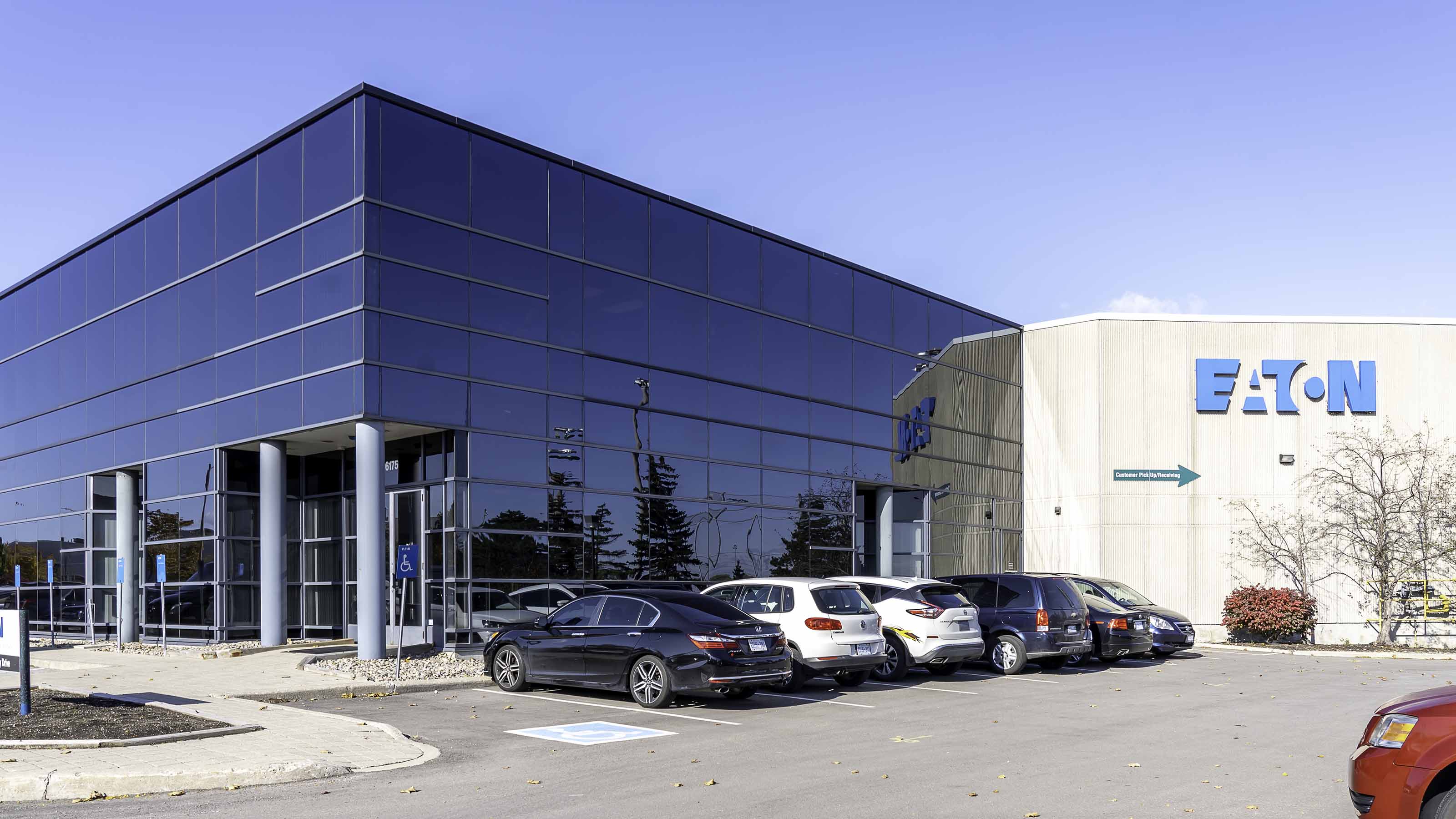
Eaton
- Market value: $68.3 billion
- Dividend yield: 1.8%
For another broad play on a boom in green-focused infrastructure spending, consider Eaton (ETN, $171.30).
No, Eaton isn't a pure play on green energy. But, as a major supplier of electrical components and systems, it is an important part of the story. Wind and solar farms have to be integrated into the national grid, and that's exactly what Eaton does.
Eaton is a power management company with over a century of operating history. It has been traded on the NYSE for nearly a century and has paid a dividend every year since 1923. That level of consistency in an industry so exposed to change is remarkable.
Between 2013 and 2019, Eaton's stock price essentially went nowhere. But as plays on green energy started to heat up in 2020, ETN's share price followed. With the market's focus now shifting to longer-term infrastructure plays, Eaton's run of outperformance could be just beginning.

Global X U.S. Infrastructure Development ETF
- Assets under management: $5.0 billion
- Dividend yield: 0.3%
- Expenses: 0.47%, or $47 annually on every $10,000 invested
Let's make it easy. If you're looking for a single one-stop shop, the Global X U.S. Infrastructure Development ETF (PAVE, $28.59) is a solid choice.
Per its investment mandate, PAVE "seeks to invest in companies that stand to benefit from a potential increase in infrastructure activity in the United States," and in raw materials, heavy equipment and construction in particular.
The ticker symbol says it all.
The ETF currently holds roughly 100 infrastructure stocks – top 10 holdings include four names on this list: DE, VMC, NU and ETN – and sports a tolerable expense ratio of 0.47%. PAVE is reasonably large for a thematic ETF with assets of $5.0 billion.
"We expect new and retrofitted physical infrastructure as well as clean energy infrastructure to require extensive raw materials including aluminum, for construction and transportation; cement, a key ingredient for making concrete; copper, for electrification; and lithium, for energy storage," Global X Research Analyst Andrew Little says. "Further downstream, companies exposed to upgrading physical infrastructure and building out clean energy capacity are likely to benefit from heightened investment, including those involved in construction and engineering, the production of heavy equipment, and manufacturing components in the CleanTech value chain."
Breaking down PAVE's portfolio, approximately 63% is invested in industrial companies with another 24% invested in materials. Information technology, utilities and even financials also make up noteworthy chunks of the portfolio, but PAVE is first and foremost a gritty industrial portfolio.
Profit and prosper with the best of Kiplinger's advice on investing, taxes, retirement, personal finance and much more. Delivered daily. Enter your email in the box and click Sign Me Up.

Charles Lewis Sizemore, CFA is the Chief Investment Officer of Sizemore Capital Management LLC, a registered investment advisor based in Dallas, Texas, where he specializes in dividend-focused portfolios and in building alternative allocations with minimal correlation to the stock market.
-
 Ask the Tax Editor: Federal Income Tax Deductions
Ask the Tax Editor: Federal Income Tax DeductionsAsk the Editor In this week's Ask the Editor Q&A, Joy Taylor answers questions on federal income tax deductions
-
 States With No-Fault Car Insurance Laws (and How No-Fault Car Insurance Works)
States With No-Fault Car Insurance Laws (and How No-Fault Car Insurance Works)A breakdown of the confusing rules around no-fault car insurance in every state where it exists.
-
 7 Frugal Habits to Keep Even When You're Rich
7 Frugal Habits to Keep Even When You're RichSome frugal habits are worth it, no matter what tax bracket you're in.
-
 Stocks Close Down as Gold, Silver Spiral: Stock Market Today
Stocks Close Down as Gold, Silver Spiral: Stock Market TodayA "long-overdue correction" temporarily halted a massive rally in gold and silver, while the Dow took a hit from negative reactions to blue-chip earnings.
-
 Stocks Struggle for Gains to Start 2026: Stock Market Today
Stocks Struggle for Gains to Start 2026: Stock Market TodayIt's not quite the end of the world as we know it, but Warren Buffett is no longer the CEO of Berkshire Hathaway.
-
 Stocks Extend Losing Streak After Fed Minutes: Stock Market Today
Stocks Extend Losing Streak After Fed Minutes: Stock Market TodayThe Santa Claus Rally is officially at risk after the S&P 500's third straight loss.
-
 Santa Claus Rally at Risk as Tech Stocks Slump: Stock Market Today
Santa Claus Rally at Risk as Tech Stocks Slump: Stock Market TodayThe Nasdaq Composite and Dow Jones Industrial Average led today's declines as investors took profits on high-flying tech stocks.
-
 Nasdaq Sinks 418 Points as Tech Chills: Stock Market Today
Nasdaq Sinks 418 Points as Tech Chills: Stock Market TodayInvestors, traders and speculators are growing cooler to the AI revolution as winter approaches.
-
 Dow Adds 314 Points to Thanksgiving Rally: Stock Market Today
Dow Adds 314 Points to Thanksgiving Rally: Stock Market TodayInvestors, traders and speculators enjoy the best Thanksgiving Week gains for the major stock market indexes in more than a decade.
-
 Nasdaq Rises 2.7% as Musk Tweets TSLA Higher: Stock Market Today
Nasdaq Rises 2.7% as Musk Tweets TSLA Higher: Stock Market TodayMarkets follow through on Friday's reversal rally with even bigger moves on Monday.
-
 Stocks Swing in Volatile Session: Stock Market Today
Stocks Swing in Volatile Session: Stock Market TodayThe main indexes fell sharply in early trading on rising China tensions, but rebounded thanks to encouraging bank earnings.
